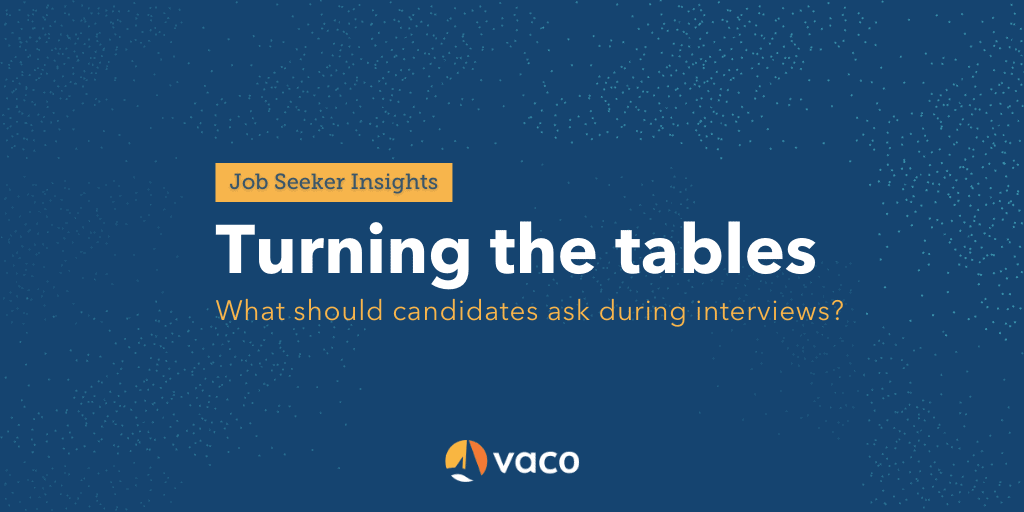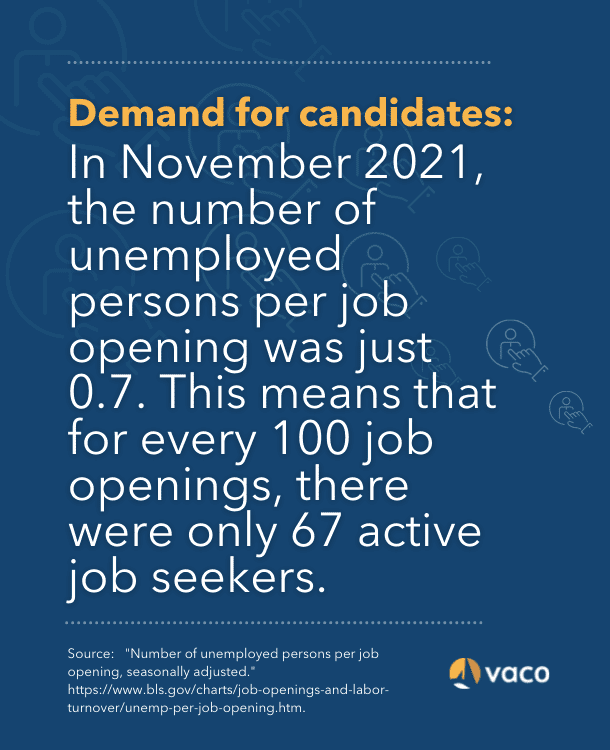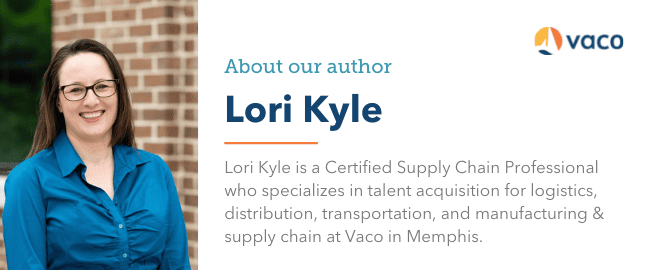There comes a time in every job interview when candidates hear the words, “So, do you have any questions for us?”
It can be daunting, after thirty minutes or an hour of carefully fielding and answering questions, to take off your interviewee hat and step into the role of interviewer. Being put on the spot like this can be rattling, especially if you haven’t carefully chosen and compiled your questions beforehand.
Some candidates completely overlook this portion of an interview, mostly because they’re hyper-focused on giving great answers. But simply shrugging and saying “nothing from me, thanks” may have more repercussions than you think.
First, not asking questions when you have the chance can give a hiring manager the impression that you’re disinterested or indifferent about the company or the role. More importantly, however, missing your chance to ask questions prevents you from learning more about the opportunity and how it fits (or doesn’t) with your own career goals and expectations.
If you’re actively job hunting, you may wonder which types of questions candidates should ask in their interviews.
Not to worry. Below, we’ve laid out some examples of thoughtful candidate questions, as well as insight on how and why to ask them.
In your first interview, focus on questions related to the position and company.
Generally, a first interview (whether it’s over the phone, virtual, or in-person) is not the best time to be laser-focused on the benefits or salary attached to a role.
If you’re truly interested in an opportunity, your first interview is the time to learn more about the position and the hiring company itself. It’s also a great chance to display your own prowess for strategic thinking.
Focus on asking questions about the specifics of the position and the company’s expectations for the role:
- “What is expected of the person in this position during the first 90 days/six months of employment? How will you measure their success?”
- “What qualities (technical skills and soft skills) have made previous employees successful in this role?”
- “What qualities (technical skills and soft skills) do you consider most important in the next person who fills this position?”
- “What are some of the long-term expectations of the person in this role?”
These questions show ambition, confidence, and big-picture thinking. They give you the opportunity to expand on your own skills and experience, while also providing you with vital info on the requirements of the job.
Read more: Nail your next interview with these tips from a Vaco hiring expert.
Research the potential employer so your questions can be more specific.
Thoroughly research the hiring company to gain a strong understanding of its everyday operations. For instance, do research on the type of clientele the company serves or its specific areas of expertise. Asking questions based on your research shows you have a real interest in the company and a fundamental knowledge of their operations.
For example:
- “I read an article about your company recently expanding into X market. What were some of the biggest challenges you faced during that process?”
Steer clear of asking questions about moving up in the company after you hypothetically accept the position, i.e., “How long does it normally take for people in this role to get promoted?”
You may think these types of questions show your interest in learning and advancing within the company, but they could frame you as opportunistic and uninterested in the role you’re actually applying for.
Take the opportunity to assess your chances.
Don’t be afraid to gauge your interviewer’s immediate thoughts on your qualifications and fit for the role:
- “Is there anything that we’ve discussed today or that you’ve seen in my resume that you feel could hold me back in this position?”
- This is a polite way of asking if you’ve met their qualifications and if there are areas where you need to improve.
- “How do I compare with other candidates you’ve interviewed for this role?”
- It’s OK to ask how you stack up against your competition. Keep in mind, however, that this question is slightly more aggressive, so it’s best to read your interviewer before asking it. If the interviewer is receptive to your questions, seems friendly beyond standard “interview protocol,” and appears impressed with your qualifications, then he or she may be less likely to push back on straightforward questions like this one.
Show that you’re thinking ahead.
When you’re on the job hunt, you may find yourself juggling multiple job opportunities at once—especially in the current market, where great candidates are in high demand and very short supply.
If you have more than one iron in the fire, it’s essential to know the hiring timeline for each position you’re considering. This information helps you adjust your expectations and your strategy for your job search.
For instance, it’s fair for you to want to know how soon you should expect to hear back from a company after an interview.
Before leaving the interview room, consider asking these questions:
- “Do you have an ideal time frame for filling this position?”
- “When should I expect to hear back from you with feedback or next steps?”
- “When is an acceptable time for me to follow up with the hiring manager regarding this position?”
As a job seeker, your time is valuable. It’s important to know how long a company’s interview process typically takes, as well as how urgently they’re filling the role you’ve applied for. If the hiring company can’t give you a defined timeline or desired start date, but you want to get into a position relatively quickly, the role may not be the best fit for you.
Similarly, if you know when to expect a follow-up from a hiring manager—whether it’s yes or no—you can plan the next steps in your job search.
Bring everything full circle.
Before you close the book on an interview, it’s helpful to circle back and make sure you’ve covered everything—both from the hiring company’s perspective and your own.
Close out your question round by asking:
- “Was I able to answer all of your questions? Is there anything you would like me to go into more detail on?”
- This is a great way to ensure you’ve covered all your bases, and that the employer has the necessary information to move forward in their decision making. Close the conversation with confidence, knowing that nothing was left on the table by either party.
Remember: a job interview is an opportunity for both the hiring company and the candidate to learn more about one another.
When you get the opening to ask questions in your next interview, think of it as a golden opportunity: to put your best foot forward as a candidate and to gather the information you need to decide if the role is right for you.
Ready for your next professional adventure? Vaco is with you all the way.
Check out our job seeker page to submit your resume or browse our current job listings.
Learn more about Lori Kyle, Vaco in Memphis.


